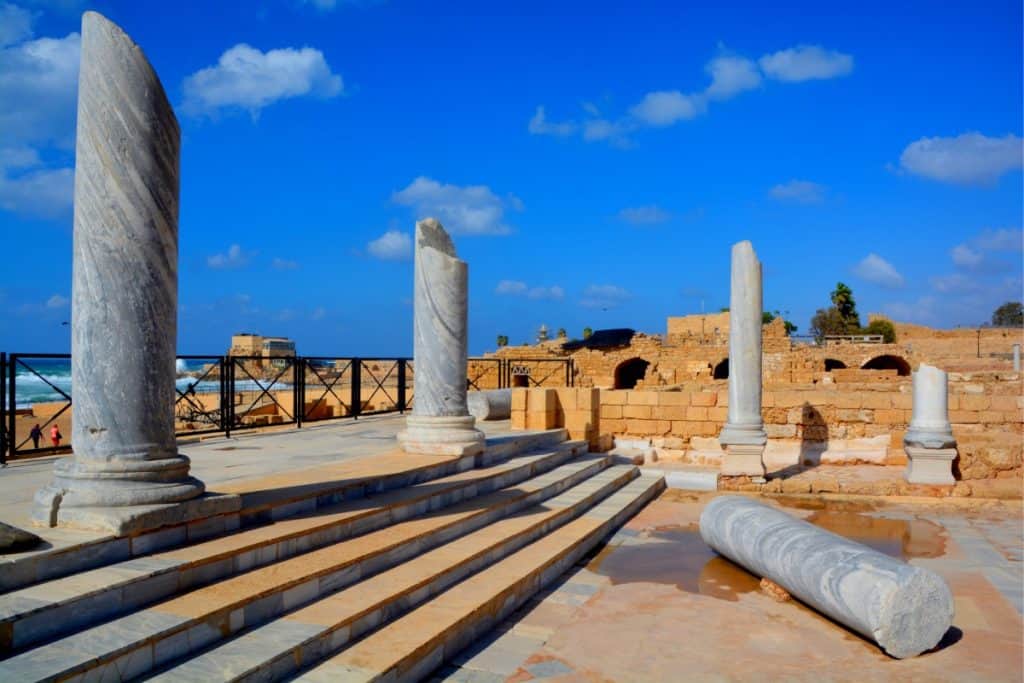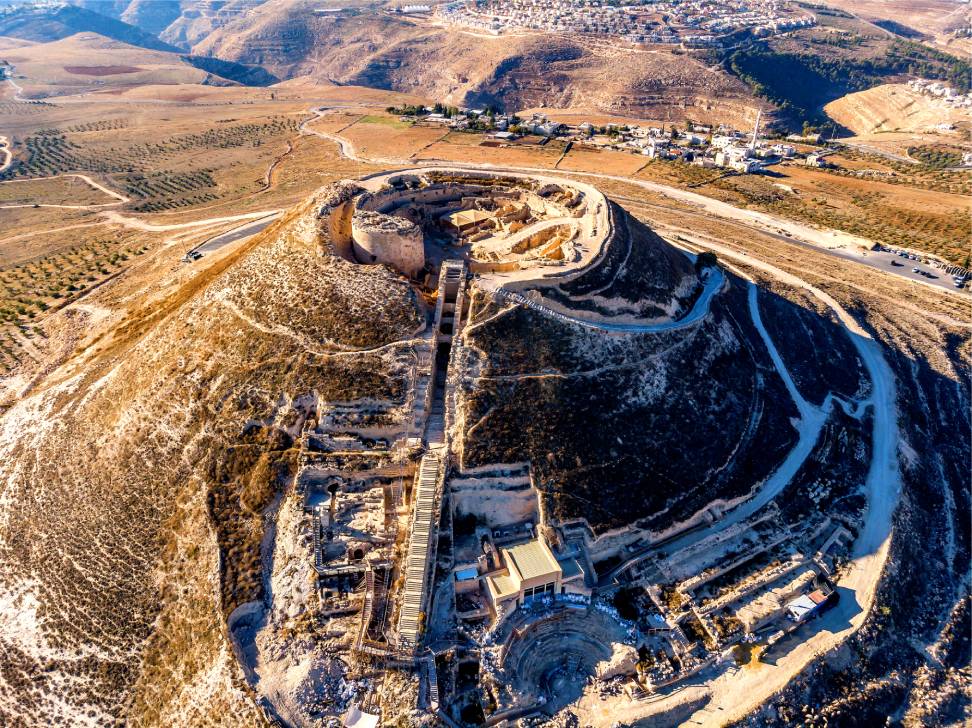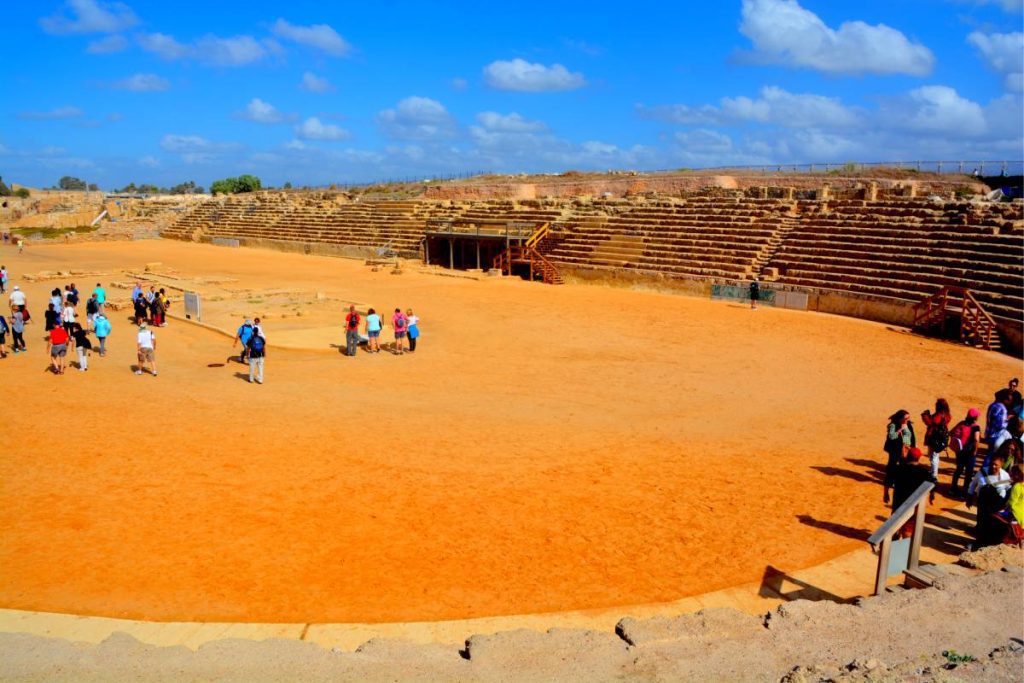Herod I (c. 73–4 BCE), also known as Herod the Great, was a Roman client king of Judea; referred to as the Herodian kingdom. The history of his legacy has polarized opinion; as he is known for his colossal building projects throughout Judea. Including his renovation of the Second Temple in Jerusalem and the expansion of the Temple Mount towards its north; the Tomb of the Patriarchs in Hebron; the construction of the port at Caesarea Maritima; the fortress at Masada, and Herodium.

Vital details of his life are recorded in the works of the 1st century CE Roman–Jewish historian Josephus. Herod also appears in the Christian Gospel of Matthew as the ruler of Judea who orders the Massacre of the Innocents at the time of the birth of Jesus; although a majority of Herod biographers do not believe this event to have occurred. Despite his successes, including singlehandedly forging a new aristocracy from practically nothing; he has still garnered criticism from various historians. His reign polarizes opinion amongst scholars and historians, some viewing his legacy as evidence of success, and some as a reminder of his tyrannical rule.
Herod the Great: His Biography
Herod the Great was the second son of Antipater the Idumaean; a high-ranking official under ethnarch Hyrcanus II, and Cypros, a Nabatean Arab. Herod’s father was by descent an Edomite; whose ancestors had converted to Judaism. Herod was raised as a Jew. Strabo, a contemporary, held that the Idumaeans, whom he identified as of Nabataean origin, constituted the majority of the population of Western Judea; where they commingled with the Judaeans and adopted their customs. This is a view shared also by some modern scholarly works which consider Idumaeans as of Arab or Nabataean origins. Thus possibly Herod was ethnically an Arab from both sides.
Herod’s rise to power is largely due to his father’s good standing relationship with Julius Caesar; who entrusted Antipater with the public affairs of Judea. Herod, Antipater’s son, was appointed provincial governor of Galilee in ca. 47 BCE when Herod was about either 25 or 28 years old and where he faithfully farmed the taxes of that region for the Roman Senate; and where he met with success in ridding that region of bandits. Antipater’s elder son, Phasael, served in the same capacity as the governor of Jerusalem.
During this time, the young Herod cultivated a good relationship with Sextus Caesar; the acting Roman governor of Syria, who appointed Herod as general of Coelesyria and Samaria. Greatly expanded his realm of influence. He enjoyed the backing of Rome. But his brutality was condemned by the Sanhedrin. When yet a private man; Herod had determined to punish Hyrcanus the king; who had once summoned Herod to stand trial for murder but was restrained from doing so by the intervention of his father and his elder brother.
Herod and His Relations With Mark Anthony
In 41 BCE, Herod and his brother Phasael were named as tetrarchs by the Roman leader Mark Antony. They were placed in this role to support Hyrcanus II. Later, Antigonus, Hyrcanus’ nephew, took the throne from his uncle with the help of the Parthians. Herod fled to Rome to plead with the Romans to restore Hyrcanus II to power. The Romans had a special interest in Judea because their general Pompey the Great had conquered Jerusalem in 63 BCE; thus placing the region in the Roman sphere of influence.
Herod Agrippa King of Judea
In Rome, Herod was unexpectedly appointed King of the Jews by the Roman Senate. Josephus puts this in the year of the consulship of Calvinus and Pollio (40 BCE), but Appian places it in 39 BCE. In any case, Herod went back to Judea to win his kingdom from Antigonus. Toward the end of the campaign against Antigonus, Herod married the granddaughter of Hyrcanus II, Mariamne (known as Mariamne I)’ who was also a niece of Antigonus. Herod did this in an attempt to secure his claim to the throne and gain some Jewish favor. However, Herod already had a wife, Doris, and a young son, Antipater. So he chose therefore to banish Doris and her child.
Herod’s Rise to Power
Herod and Sosius, the governor of Syria; at the behest of Mark Antony, set out with a large army in 37 BCE and captured Jerusalem; Herod then sent Antigonus for execution to Mark Antony. From this moment, Herod took the role as sole ruler of Judea and the title of basileus (“king” in Ancient Greek) for himself; ushering in the Herodian Dynasty and ending the Hasmonean Dynasty. Josephus reports this as being in the year of the consulship of Agrippa and Gallus (37 BCE); but also says that it was exactly 27 years after Jerusalem fell to Pompey; which would indicate 36 BCE.
Cassius Dio also reports that in 37 BCE “the Romans accomplished nothing worthy of note” in the area. According to Josephus, Herod ruled for 37 years, 34 of them after capturing Jerusalem. As some believe Herod’s family were converted to Judaism; his religious commitment was questioned by some elements of Jewish society. When John Hyrcanus conquered the region of Idumaea (the Edom of the Hebrew Bible) in 140–130 BCE; he required all Idumaeans to obey Jewish law or to leave; most Idumaeans thus converted to Judaism, which meant that they had to be circumcised; and many had intermarried with the Jews and adopted their customs.
While Herod publicly identified himself as a Jew and was considered as such by some; this religious identification was undermined by the decadent lifestyle of the Herodians; which would have earned them the antipathy of observant Jews. Later he executed several members of his own family, including his wife Mariamne I and his own kids. There was a famous saying about him. It was said it is better to be Herod’s pigs than His kids; since he killed most of them and his wives.
My Private Tours
On my tours, there are various sites related to King Herod. For example, Jerusalem the area of Temple Mt. was built by him. Masada National Park is another with its magnificent views.









